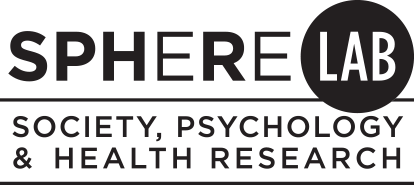Prospective PhD students
Professor Wilson is a community and health psychologist interested in how psychological, social, and cultural factors shape individual- and community-level health outcomes. Broad areas of interest include sexual health, substance use, and mental health and on health promotion interventions targeted toward racial/ethnic and sexual minority, youth and young adult, and vulnerable populations.
I will be reviewing applications for the Health Psychology program for the 2025-2026 academic year.
You can find out more about our Health Psychology program by visiting the departmental website: https://health.psych.ucla.edu. Due to the sheer number of applications we receive, I am unfortunately unable to speak individually with applicants before the interview stage.
What does the lab look for in prospective graduate students?
Our lab seeks students who are interested in furthering the study of individuals disproportionately affected by HIV, substance use, mental health problems, and other related issues by examining psychological, social, and cultural factors that shape individual- and community-level health outcomes. Prospective students should review our current research projects in the lab by clicking on the “Research” tab on our website. Students’ interests typically revolve around sexual health, substance use, mental health, health promotion, and stigma, as we aim to garner students who are eager to conduct research informing the development of innovative, culturally-grounded interventions that reduce risk and improve health. We especially welcome applicants who come from traditionally underrepresented backgrounds. We welcome applicants of all backgrounds, racial/ethnic identities, socioeconomic status, gender and sexual identities, disability statuses, and shapes and sizes!
Although our work is focused on health psychology, our projects integrate diverse interdisciplinary perspectives from numerous fields, including public health, sociology, political science, as they all provide important background into the sociocultural factors that influence the health outcomes of marginalized individuals. Additionally, we incorporate advanced quantitative, mixed-methods, and community-based approaches into our research methodology. Our lab also takes into consideration intersectionality, as it affords the opportunity to understand how multiple identities can shape individuals and their health outcomes.
Considering our interdisciplinary approach, students who are most successful in our lab are those who seek to integrate a holistic examination of sociocultural contexts within their understanding of health outcomes and are willing to utilize various methodologies to examine their research questions. A combination of both tangible skills in quantitative and qualitative methods as well as intangible skills such as inquisitiveness, empathy, and diversity is what best fits our lab.
As for my mentorship style, I first establish a mentor agreement with doctoral students and maintain regular meetings with them to provide consistent support with their research endeavors. I also encourage doctoral students explore other labs and work with other mentors, allowing them to familiarize themselves with different topics and research approaches.

